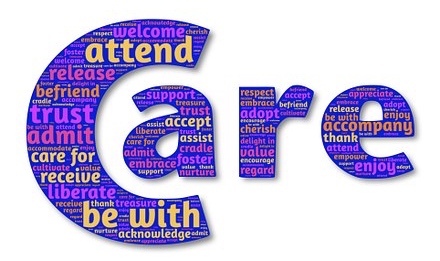The importance of values
I do a lot of media training, which these days includes social media training. 
Training people on the use of social media is tricky, because almost everyone starts from a different place. With traditional media the starting point is universally the same, it’s always the distrust of journalists. To make those sessions more purpose-driven, I could accurately rename them, ‘How to reduce the risk of getting screwed by the media.’
With social media everyone has a different reason for wanting training. Some are natives, others are novices; some are confident, others fear being trolled; some want to engage for social reasons, others professional; some want to know tactics, others strategy.
Yet a universal challenge among these different groups is coming to terms with the tone and personality they want to convey. So each person’s contribution to the social media universe is defined by his/her values. So I start by talking about values.
You don’t have to write about your values for people to get which ones are important to you. By way of illustration, watching politicians, you know something of Trump’s values, and Shorten’s and Turnbull’s, and Rudd’s, simply by their public utterances and behaviour. Some people are more transparent than others, but every time each of us commits to an utterance on social media it’s a tiny peephole into what makes us tick.
And obversely, when you know your values, you can be more confident in expressing the tone and personality of your content.
Middle-aged men and values.
A lot of CEOs tell me ‘integrity’ is their most important value, but act differently by navigating their company as close to the edge of the law as possible to maintain a competitive advantage. In those cases, integrity has almost nothing to do with their visible behaviour.
However, I’ve discovered that ‘integrity’ or ‘honesty’ are often the default value – the value you describe when can’t think of any others.
Often when I start a conversation about values, and people don’t describe ‘integrity’ the response is — silence. It doesn’t mean there are none – it means people are not used to defining them.
Once defined, the training session and the conversation can then move to purpose and strategy.
And from experience, I can tell you the group that has most difficulty talking about values is middle-aged men. And in this unbalanced society most leaders are men.
So the exercise of talking about values in a discussion about social media, is valuable. Your best outcomes in social media will be when what you write and do are guided by your values. So my core values are ‘excellence’ and ‘stronger relationships’ (there are others), which means, while I may never mention them, when I write I am conscious that those are my guiding beacons.
Who does talk about values?
I was recently lucky enough to host a large two-day conference on innovation in the Third Sector. Lucky, because between introducing speakers, I was able to listen to them, for two whole days.

Until now this ill-defined sector has been a confusion of volunteer organisations, not-for-profits, NGOs, and charities. Now it’s clearer. The one value that connects everyone in this sector, is they care for others. So an intrinsic part of each person’s presentation was, not profitability, not policy or politics, but the value of values and in particular, ‘caring’.
What shone through was the growing influence of this area, as it takes responsibility away from the Public and the Private Sectors.
Watch this space.
So while the private sector keeps making the money, and the government keeps the country running, this third sector looks after those of us in need, often one person at a time. And as government increasingly fails in its care for our less fortunate, or deliberately passes-the-baton of responsibility as it’s doing with the NDIS, this Third Sector will become a more clearly recognised member of this trinity.
And as the sector becomes more defined, so will our values.





